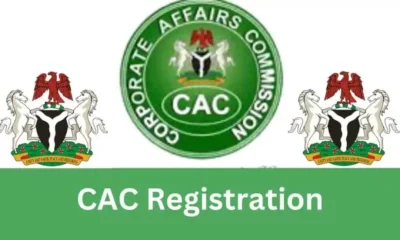Nigeria News
CAC to delist 100,000 companies from database, gives reason

The Corporate Affairs Commission (CAC) has announced its plan to remove 100,000 registered companies from its database due to their failure to file annual returns. The Registrar-General and Chief Executive Officer, Alhaji Garba Abubakar, revealed this during a training on ‘Use of the beneficial ownership register’ in Lagos.
Abubakar stated that the commission would enforce the removal of these companies as part of its efforts to ensure compliance with regulations. The affected companies have not filed their annual returns for the past 10 years, and the commission will send them notices of striking off before taking action, in accordance with section 692 of the CAMA, 2020.
However, he pointed out that the companies have the opportunity to be relisted by settling their outstanding debts and obtaining a court order, as prescribed by the law. Abubakar advised all companies to pay their annual returns on time to avoid being struck off the CAC register.
The Registrar-General also spoke about Africa’s first Beneficial Ownership Register (BOR), which was developed by the CAC with the assistance of the World Bank. He emphasized that this register would play a crucial role in combatting corruption, money laundering, and terrorism financing.
He urged various stakeholders, including investigating agencies, legal practitioners, journalists, and civil society organizations, to utilize the BOR to fulfill their responsibilities effectively.
Dr. Adeyeye Adefulu, Chairman of the Nigerian Bar Association Section on Business Law (NBA-SBL), commended the CAC for achieving this significant milestone. He encouraged members of NBA-SBL to use the knowledge gained from the training for the betterment of the Nigerian economy and assured the commission of the association’s continued support.
Aminu Gwadabe, President of the Association of Bureau De Change Operators of Nigeria, emphasized the importance of the BOR in combating money laundering and terrorism financing. He advised professionals to exercise due diligence while dealing with their clients to curb these illegal activities.



















